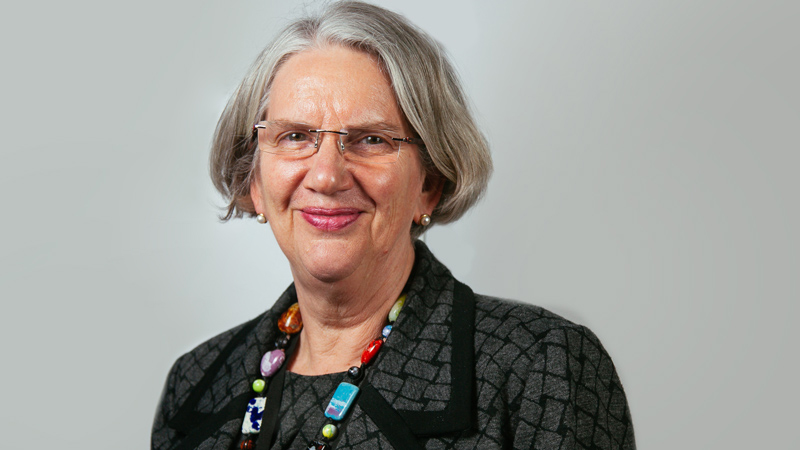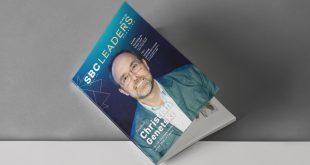 Ahead of a General Election in which none of the parties have garnered popular support, Lord David Lispey has perhaps captured the mood of the nation by branding the Government ‘tossers’.
Ahead of a General Election in which none of the parties have garnered popular support, Lord David Lispey has perhaps captured the mood of the nation by branding the Government ‘tossers’.
Lord Lipsey has called the Government ‘a bunch of tossers’ for not implementing the Gaming Machine (Circumstances of Use) (Amendment) Regulations – which requires anyone playing with stakes above £50 on FOBTs to do so via account or by loading money at the counter – a good six months earlier.
In the final debate on gambling in Parliament before the General Election, Lipsey also argued that any more restrictions on the bookmaking industry would see mass closures of betting shops and the loss of jobs that would go with it.
In an earlier debate Lipsey suggested that if betting on horseracing was ‘full sex’ then people who played gaming machines were ‘practising onanism’, and he extended the metaphor to criticise government officials for the delay in implementation of the new restrictions.
He quoted the House’s Secondary Legislation Scrutiny Committee, which wrote: “The [regulations] will come into force only in April 2015, a full 12 months after the Government announced the need for the new requirement, and six months later than was foreshadowed in that announcement … We question whether the Government could have brought forward the latest Gaming Machine (Circumstances of Use) (Amendment) Regulations more expeditiously, given the concern about problem gambling which they address”.
Lipsey added: “The House should generally pay attention to the findings of its own committees, and that was a pretty severe condemnation.”
He also commented that George Osborne’s recent announcement of the racing right, which ostensibly aims to charge any bookmaker for taking bets on British horseracing, would preclude the industry getting any more restrictions on gaming machines.
“How does that relate to the FOBT question?” he asked. “Doing anything serious about FOBTs will cost bookmakers money. It will cost them a substantial sum of money—a lot more than 1.4% of their FOBT revenue. But at the same time as the Government are dithering over that, they have suddenly decided to impose an enormous new charge on the betting industry to pay horseracing. The impact assessment on the racing right suggests that on a low yield the costs will not increase but that on the highest yield—50%, which is in the impact assessment—it will cost the bookmakers an extra £390 million a year.
“If you add a similar bill, as you easily might, for curbing FOBTs, what will be the result? Will it not be the mass closure of betting shops, the removal of a local facility that many people appreciate, shops rotting on the high street because nobody will take them over, and a huge loss of jobs among betting shop staff? That is the Government’s prospectus for the betting industry.”
Baroness Jolly, the Government’s spokesperson for the debate, said that the Government understood the public concerns around FOBTs and ‘consider the future of their regulation to be unresolved’.
She added: “Gambling has long been positioned in public policy terms as a mainstream leisure activity. Most people who gamble do so in this context: they choose how much they will spend. This is how they choose to use their leisure time, as the noble Baroness, Lady Golding, said. Generally speaking, they have fun so doing, but it is important to remember that all gambling – not just machine gambling – can and does cause harm for some gamblers, their families, friends, communities and employers. That is why we have intervened to regulate it.”

She also defended the Government’s approach with the new FOBT measures: “We are introducing these precautionary and proportionate measures based on the available evidence. In addition, we have supported, and continue to support, independent research in this area and continue to oversee a cultural change on social responsibility.”
Jolly continued: “All players using these machines will be required to use account-based play or load cash over the counter, forcing an interaction, when they wish to stake over £50. Making staff interaction a compulsory component of high-staking machine play ensures greater opportunities for intervention where patterns of behaviour indicate that someone may be at risk of harm from their gambling. In addition, account-based play allows players access to up-to-date and accurate information in the form of activity statements and real-time information about their session of play, which can help people maintain control. On that basis, we believe that these measures will help higher-staking customers benefit from more conscious decision-making, while increasing opportunities for interaction and intervention with appropriately trained staff, and therefore assisting customers to stay in control of their gambling behaviour.”
She also said that the argument to cut stakes wasn’t as cut and dried as campaigners made out. “Opponents of this measure call for a reduction in stakes on these machines to £2. We do not accept that this is justified or proportionate. The campaigners on this issue often fail to highlight two key points. The first is that problem gamblers usually gamble on a wide range of products. The idea that cutting the stake on one machine in one environment will somehow make problem gamblers see the error of their ways seems fanciful, as they are likely simply to take their business to the arcade or casino or online.
“The second is that not only do we find significant proportions of problem gamblers staking at lower levels but we find many of those staking at higher levels are doing so safely. The evidence points to a stake cut of this scale doing little to protect problem gamblers, and a lot to constrain the choice of normal leisure gamblers.
“That is why we are pushing for better interventions that complement controls on the machines and the betting environment, with a greater focus on individual customers. The Government believe that this is a sensible approach that balances the commitment to reduce problem gambling and protect the vulnerable while, at the same time, protecting an enjoyable leisure activity for the vast majority of customers who visit bookmakers’ offices.”









